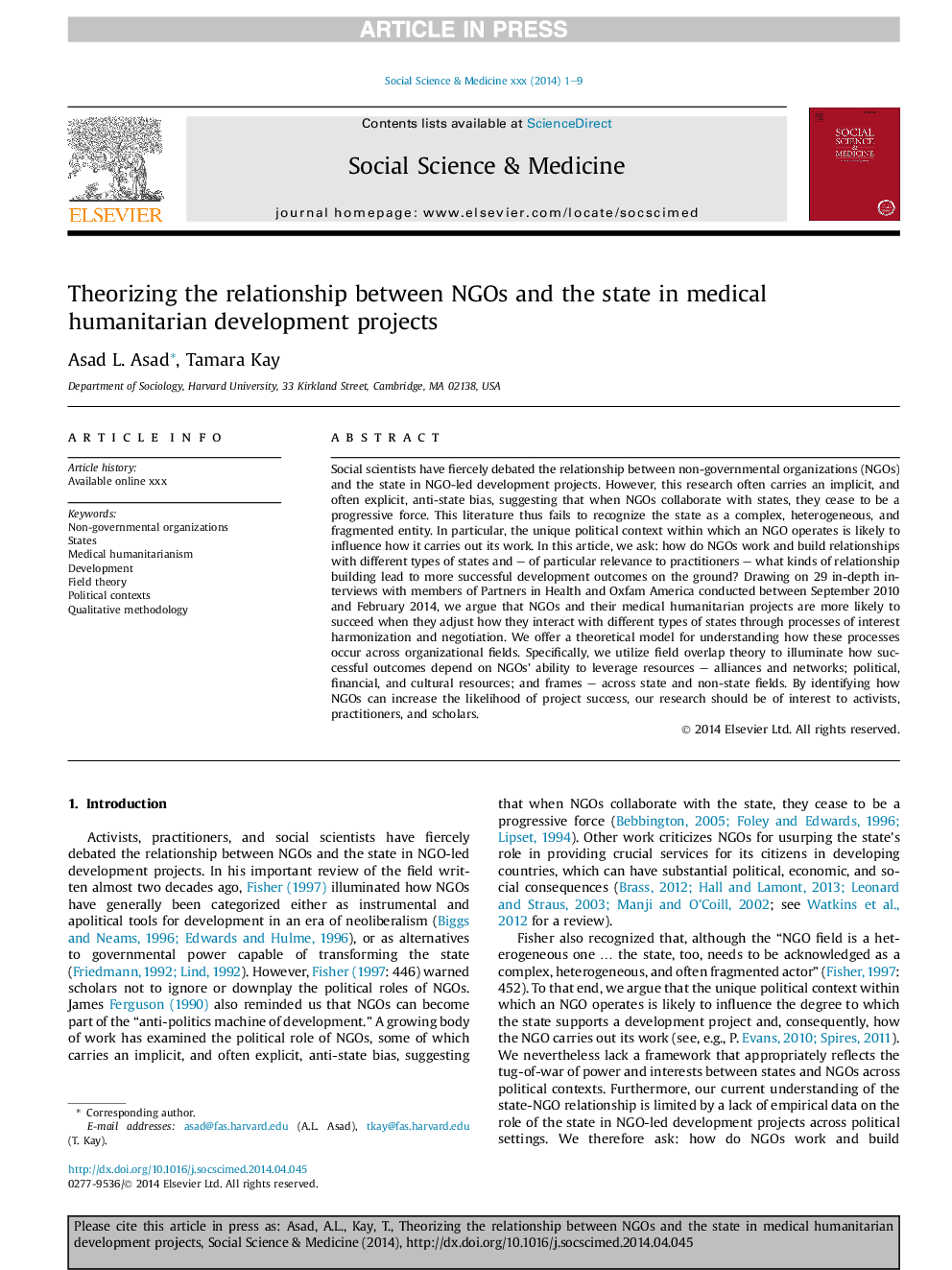| کد مقاله | کد نشریه | سال انتشار | مقاله انگلیسی | نسخه تمام متن |
|---|---|---|---|---|
| 7334183 | 1476048 | 2014 | 9 صفحه PDF | دانلود رایگان |
عنوان انگلیسی مقاله ISI
Theorizing the relationship between NGOs and the state in medical humanitarian development projects
ترجمه فارسی عنوان
بررسی رابطه بین سازمان های غیر دولتی و دولت در پروژه های توسعه انسانی پزشکی
دانلود مقاله + سفارش ترجمه
دانلود مقاله ISI انگلیسی
رایگان برای ایرانیان
کلمات کلیدی
سازمان های غیر دولتی، ایالت ها، بشردوستانه پزشکی، توسعه، نظریه میدان، زمینه های سیاسی، روش کیفی،
موضوعات مرتبط
علوم پزشکی و سلامت
پزشکی و دندانپزشکی
سیاست های بهداشت و سلامت عمومی
چکیده انگلیسی
Social scientists have fiercely debated the relationship between non-governmental organizations (NGOs) and the state in NGO-led development projects. However, this research often carries an implicit, and often explicit, anti-state bias, suggesting that when NGOs collaborate with states, they cease to be a progressive force. This literature thus fails to recognize the state as a complex, heterogeneous, and fragmented entity. In particular, the unique political context within which an NGO operates is likely to influence how it carries out its work. In this article, we ask: how do NGOs work and build relationships with different types of states and - of particular relevance to practitioners - what kinds of relationship building lead to more successful development outcomes on the ground? Drawing on 29 in-depth interviews with members of Partners in Health and Oxfam America conducted between September 2010 and February 2014, we argue that NGOs and their medical humanitarian projects are more likely to succeed when they adjust how they interact with different types of states through processes of interest harmonization and negotiation. We offer a theoretical model for understanding how these processes occur across organizational fields. Specifically, we utilize field overlap theory to illuminate how successful outcomes depend on NGOs' ability to leverage resources - alliances and networks; political, financial, and cultural resources; and frames - across state and non-state fields. By identifying how NGOs can increase the likelihood of project success, our research should be of interest to activists, practitioners, and scholars.
ناشر
Database: Elsevier - ScienceDirect (ساینس دایرکت)
Journal: Social Science & Medicine - Volume 120, November 2014, Pages 325-333
Journal: Social Science & Medicine - Volume 120, November 2014, Pages 325-333
نویسندگان
Asad L. Asad, Tamara Kay,
